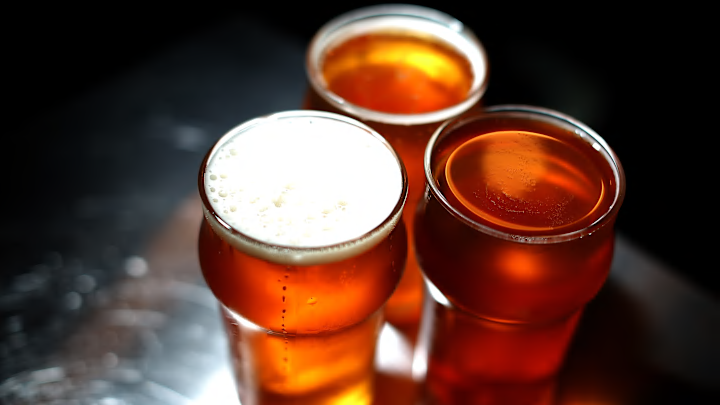Gluten-free beer is on the rise
Beer has been poured and served for thousands of years. Despite common misconceptions, beer is actually quite easy to make. In essence, beer only requires water, grains, hops, and yeast. The brewing process may seem intimidating, but it is quite straightforward. While fermentation takes time, beer brewing itself is relatively simple.
Generic and typical brewing may be simple, but it's important nowadays to offer beers that are suitable for everyone, including those who are gluten-intolerant or allergic. On the surface, it might seem easy to just "remove the gluten from beer" to make a gluten-free beer, and essentially it is that easy. In fact, making gluten-free beer is pretty straightforward. It makes you wonder why more breweries don't include them on their draft list.
How do brewers make gluten-free beer?
There are two ways that beer can become gluten-free. The first way is the most obvious - brewers use gluten-free ingredients throughout the brewing process. This process means replacing the grains (conventionally barley) with a naturally gluten-free cereal such as sorghum, millet, buckwheat, rice, quinoa, or maize.
The cost of production is higher using more intricate ingredients. Alternative grains tend to cost more. Not only will production costs increase, but the alt-grains will also provide a different aroma and flavor profile for the beer. Many of the alternate grains are known as ancient grains which offers an interesting insight into what beer could have tasted like thousands of years ago.
The second method involves producing beer in the usual way and then using enzymes to break down the gluten proteins. These beers are usually referred to as "gluten-removed" since the gluten is removed post-production. It's important to note that in the US and Australia, this process does not make a beer gluten-free. Only in Europe does this process constitute a gluten-free beer.
Where can you find great-tasting gluten-free beer?
The answer to this question is not simple. Access to gluten-free beer can be challenging for many people, depending on their location. Several gluten-free breweries have limited production capacity and small distribution networks. While some gluten-free breweries now offer online sales, shipping restrictions may apply due to state liquor laws and regulations.
The rising demand for gluten-free products is encouraging more breweries to explore this niche, despite the challenges like higher production costs and grain availability. As brewing technologies advance and understanding of alternative grains improves, these beers are becoming more flavorful and affordable.
Gluten-free beer is becoming increasingly accessible, thanks to expanding distribution networks and consumer interest. Whether you have dietary restrictions or are simply exploring new tastes, the gluten-free beer market is ready to welcome you.
